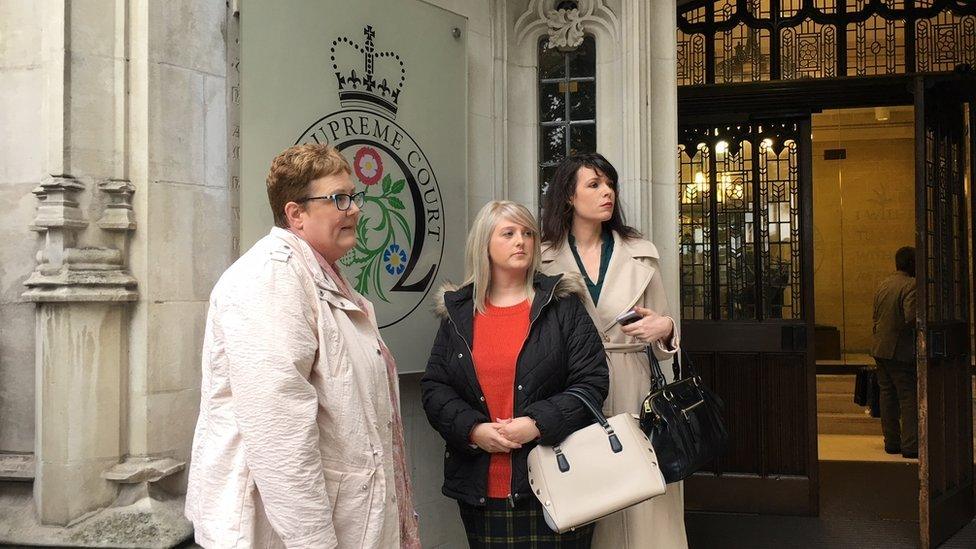Irish committee recommends removing abortion ban
- Published
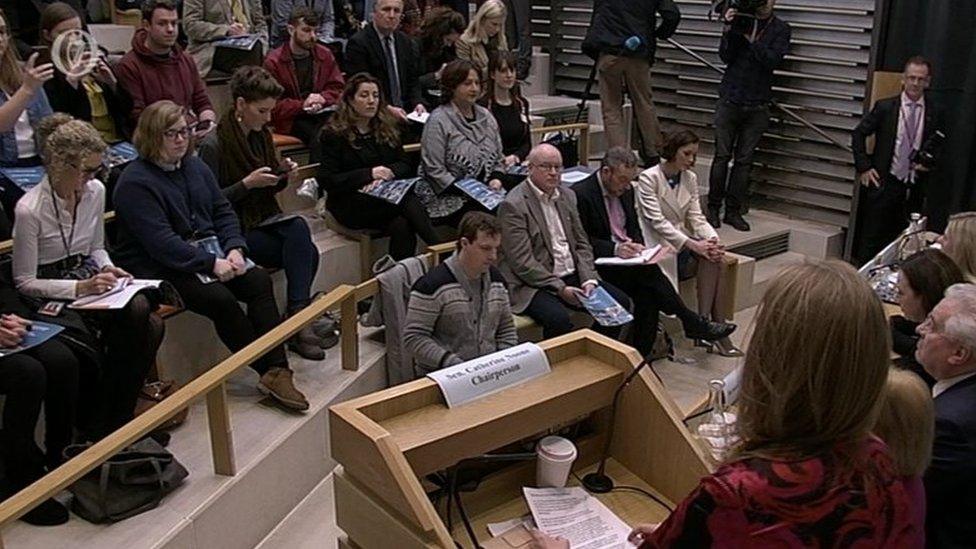
The cross-party group of politicians has recommended new legislation on time limits for terminations
An Irish Parliamentary committee has recommended that the Republic liberalise its abortion laws.
The committee was set up to assess the constitution's eighth amendment, which gives an equal right to life to a pregnant woman and an unborn child.
The main conclusion of its report, external is that this must be removed to allow "some change" in Irish abortion law.
The cross-party group recommended also recommended new legislation on time limits for terminations.
The committee's chairwoman said it was never about reaching a consensus as it is a divisive issue.
Senator Catherine Noone said the report reflected the fact that the views of the majority of the committee sit in the middle of polar opposite views on abortion.
Senator Noone said it would take time for the Irish public and politicians to consider and understand the report's recommendations.
She also said next summer's referendum on the eighth amendment would give the Irish people their say on the issue.

Abortion in the Republic of Ireland
The Republic of Ireland has a near total ban on abortion.
In 2013, abortion was permitted for the first time in the country under certain conditions - when doctors deem that a woman is at risk of taking her life, or that her life is at risk due to medical complications.
The law does not allow for terminations in cases of rape or incest, or when there is a foetal abnormality.
The law was introduced in the wake of the case of an Indian woman, Savita Halappanavar, who died in a Galway hospital in 2012 after she was refused an abortion.
The eighth amendment to the Republic's constitution, introduced in 1983, "acknowledges the right to life of the unborn".
In what was known as the X Case of 1992, a 14-year-old rape victim was initially prevented from travelling to England to terminate her pregnancy.
This ruling was overturned by the Irish Supreme Court and a referendum approved a further update to the constitution, stating that the eighth amendment did not restrict the freedom to travel to another state.

Three members of the committee, who are in favour of retaining the eighth amendment, had already confirmed they would not put their names to the final report.
Senator Rónán Mullen, Mattie McGrath TD (member of the Irish parliament) and Peter Fitzpatrick TD have made their own recommendations.
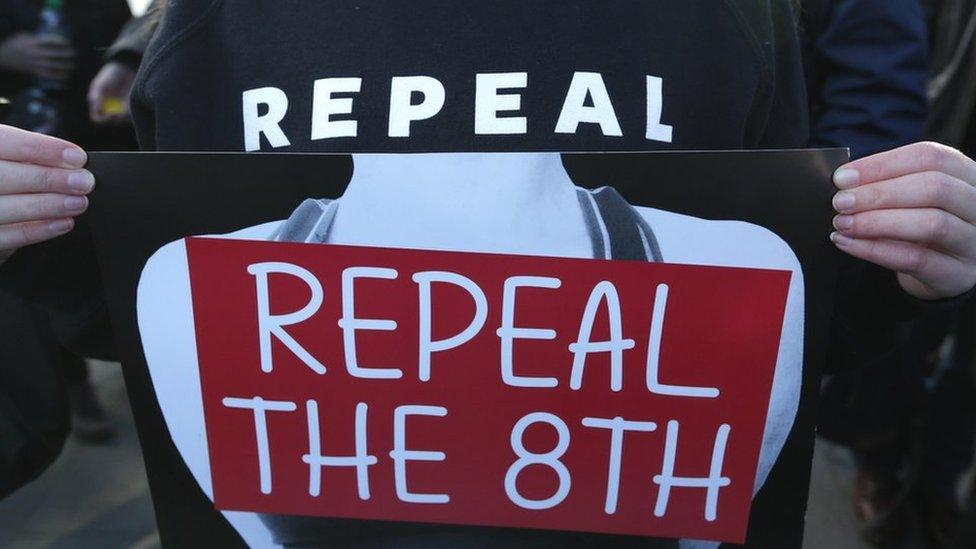
Pro-choice campaigners are calling for the repeal of the eighth amendment
Mr McGrath said one "huge gaping hole" during the committee hearings was the lack of legal representation to defend the constitution.
Speaking to Irish national broadcaster RTÉ, he rejected the conclusions of the report to recommend repealing the amendment and to allow access to abortion up to 12 weeks.
He said it "behoves the government of the day" to defend the constitution, but this did not take place, despite "several requests for legal representation from the Attorney General's office to defend the status quo".
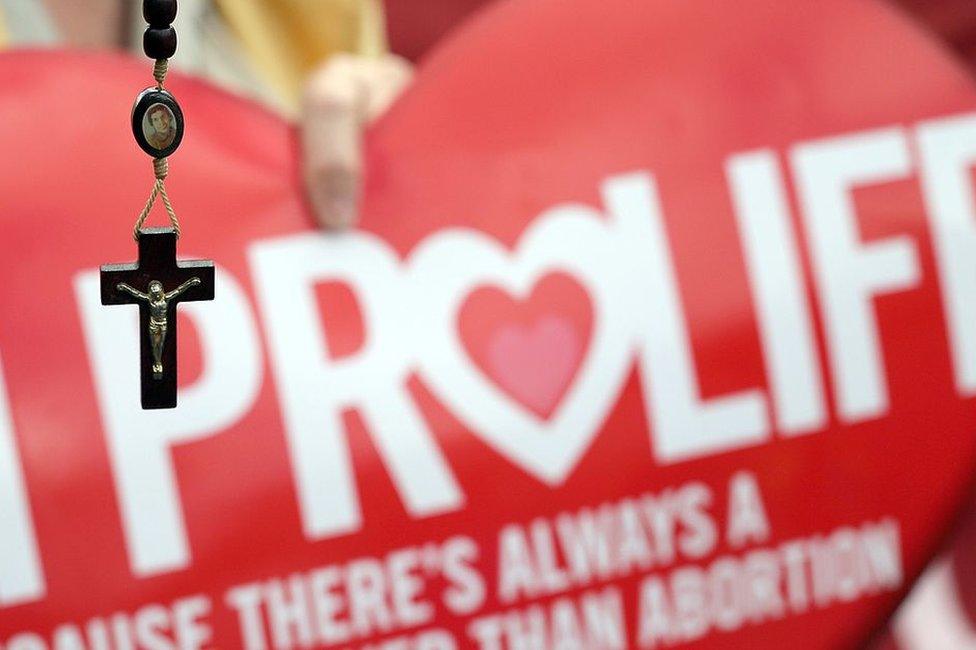
Anti-abortion campaigners say the unborn should have rights to life
It is three months to the day since the committee sat for the first time in public session to consider recommendations from the Citizens Assembly on Article 40.3.3 (the eighth amendment).
Members considered the constitutional, legal and medical grounds for abortion in Ireland and the report reflects votes taken by members of the Irish parliament and senators earlier in December when the majority voted in favour of repealing the amendment.
- Published26 September 2017
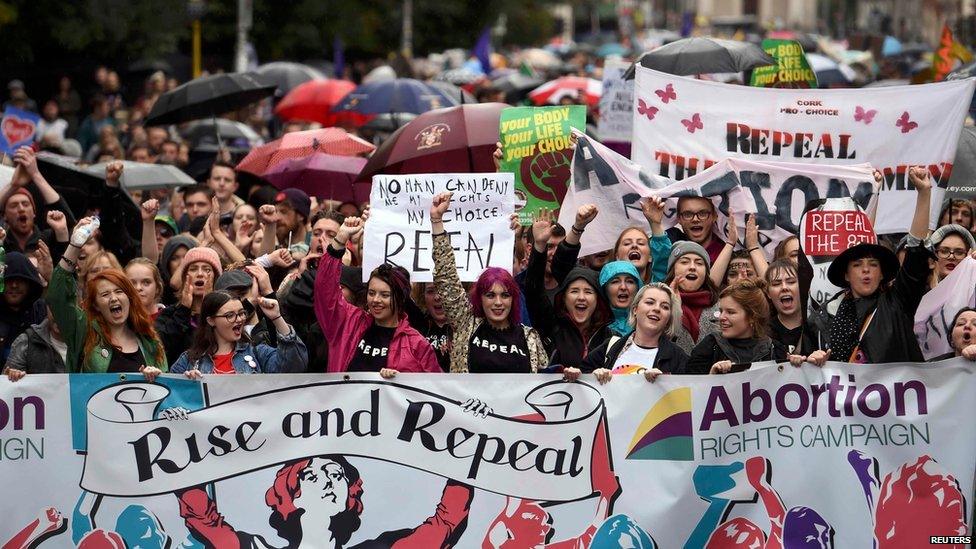
- Published8 March 2017
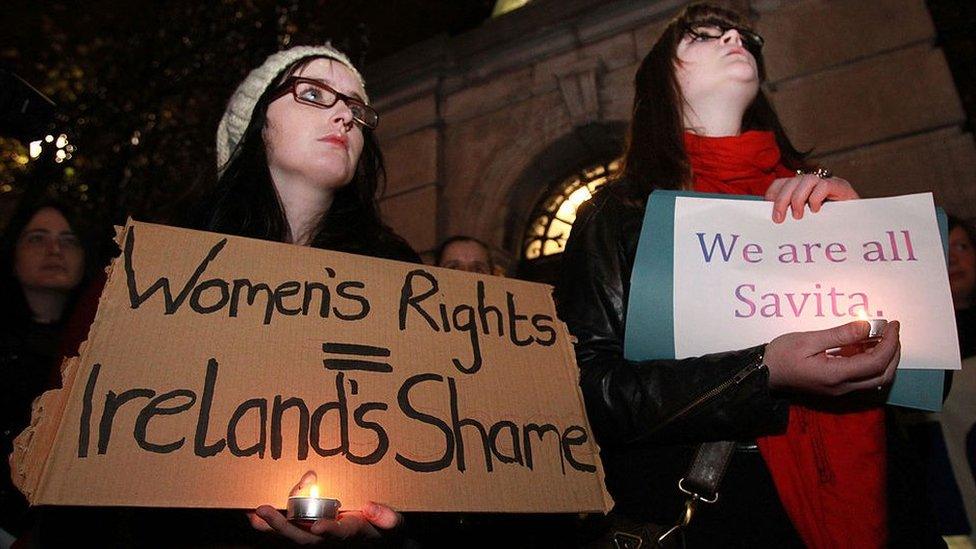
- Published24 October 2017
